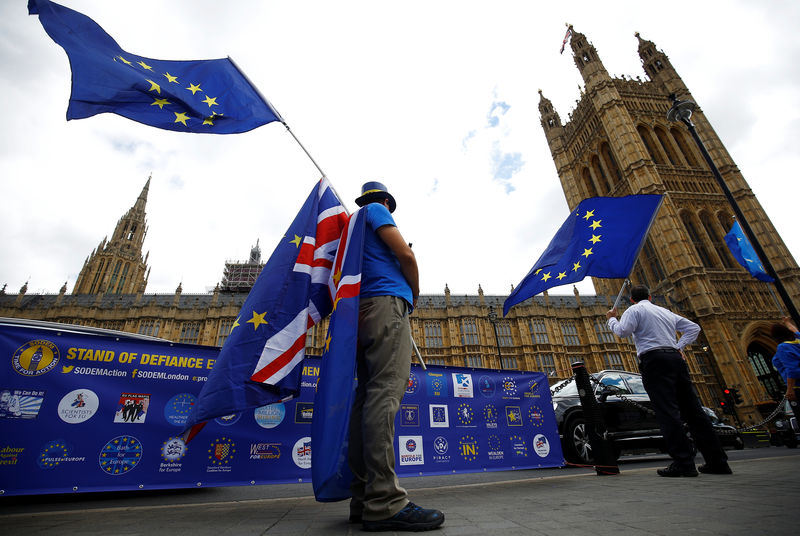By Gernot Heller and Joseph Nasr
BERLIN (Reuters) - Britain is heading towards a disorderly exit from the European Union that could have disastrous consequences for its economy and those of its partners in the bloc, Germany's BDI industry group has warned.
To avoid such an outcome, commonly known as a hard Brexit, the British government must agree to remain in the EU's single market and customs union and accept EU jurisdiction as the reference for settling any future disputes, it said in a statement issued on Friday.
That was also the only way to avoid the reimposition of controls at the border between British-ruled Northern Ireland and the Irish Republic after Brexit, a major concern for EU leaders who hold a summit on June 28-29.
"The danger that Brussels and London find themselves empty- handed on March 29, 2019 is high," said BDI General Manager Joachim Lang.
"Two years after the referendum, Britain is drifting unstoppably towards a disorderly Brexit.
"The British government is still playing for time. This strategy leads to disaster. A clear course correction is needed."
Leaders of the 27 countries that will remain in the EU after Britain leaves next year are worried by the lack of an operational agreement for the Irish border once Britain leaves the bloc in March 2019.
Both Britain and the EU want to keep a free flow of people and goods over the border without returning to checkpoints, symbols of the three decades of violence in Northern Ireland that was largely ended by a 1998 peace deal.
A "backstop" solution was agreed in very general terms in December, but there has been no consensus since on how to put it in place by Brexit day.
The BDI said the only way to solve the Irish border issue was for Britain to remain in the single market. Failure to find a solution for the border would not only jeopardise a final withdrawal agreement but also a deal on a transition period until the end of 2020, the BDI added.
"If negotiators don't make progress (on this issue), the badly needed transition period until the end of 2020 is at risk," Lang said.

"This would have huge negative consequences for companies on both sides of the channel, but above all for the British economy."